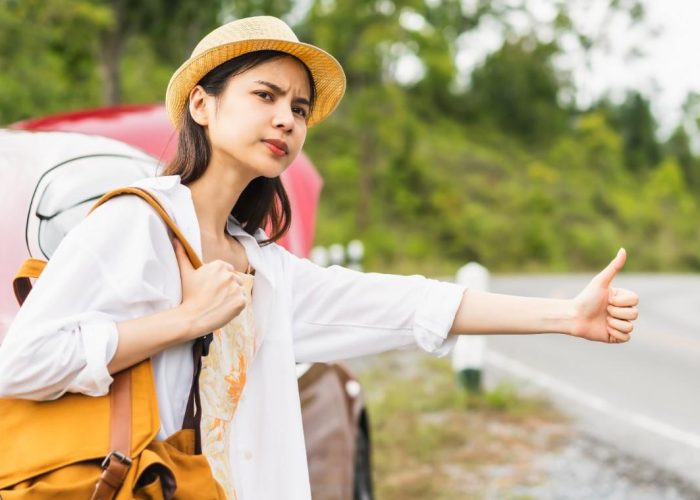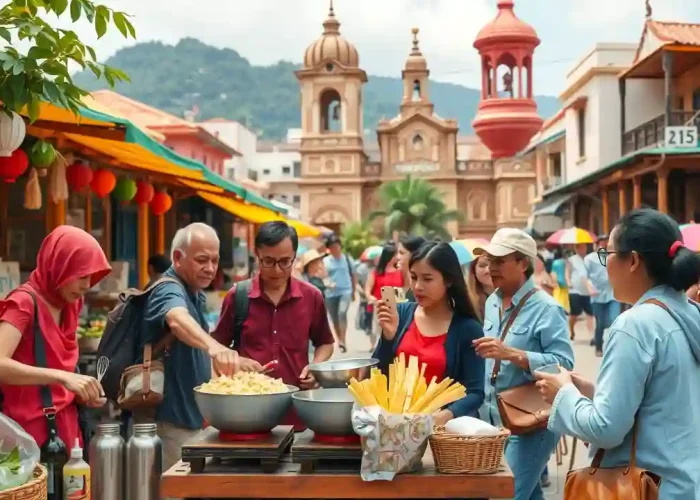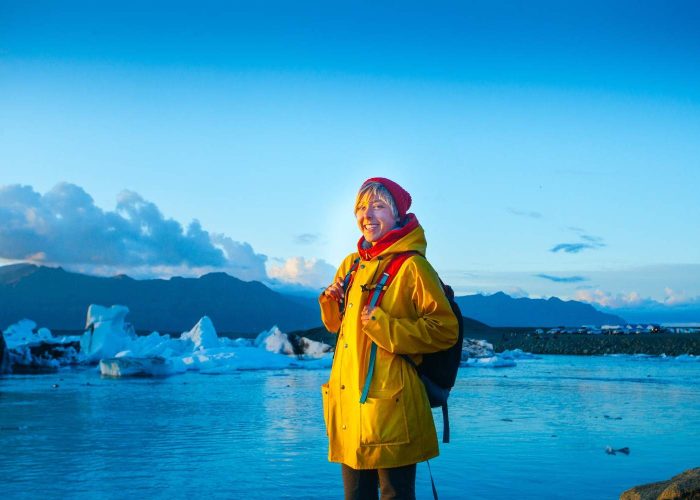Travelling is a very rewarding experience because you get to learn new cultures, meet new interesting people and have memories of a lifetime. But, such excitement of travelling can easily turn into stress, unless there is proper planning. This complete travel guide is offered to equip you with important tips, secrets and ideas with the aim of making your trip simpler and more pleasant regardless of whether you are an experienced traveler or a first-time traveler.
This guide will explore such things as the process of choosing the ideal travel destination, airport navigation, packing, and the significance of travel insurance. We will also research the local traditions and etiquette, the places to stay, setting up of itinerary, and suggestions on how to make the best out of the experience of traveling.
Choosing Your Destination
The most important and the first step in planning how to travel is to select the destination. The destination that you choose determines how the whole traveling experience would be. The following are some of the considerations in making a choice of where to go:
- Interests and Preferences: What do you like, are you a dare-devil, history-student, or a beach-bath lover? Your destination will be determined by your interests. As an illustration, when you like outdoor things then you can look into destinations that are popular with hiking, skiing, or water sports.
- Budget: Budget plays a major role in influencing destination choice. Other places are cheaper and therefore, take into account accommodation, food and activity prices. An example of this can be seen in Southeast Asia where the experiences are cheaper than when compared to Europe or North America.
- Travel Season: The season of the year may have a drastic impact on your traveling experience. Find out when to visit the destination in the most appropriate time based on weather, local festivals, and tourists. Off-season travelling can save you money on flights and accommodations as well as avoid the crowds.
- Safety and health: Travel advisories and health recommendations Before you finalize your destination, ensure that you check them. Such sources as the U.S. State Department and the World Health Organization (WHO) have some useful safety and health information.
- Cultural Experiences: Consider your cultural experiences. Do you like to experience local culture, sample local cuisine or visit festivals? Learning about the cultural offerings of a destination can assist you to select a destination based on your interests.
By spending time to consider these factors carefully, you will be able to choose a destination that will appeal to you personally, which will make your traveling experience more memorable and result in memorable memories.
Understanding Local Customs and Etiquette
All cultures have their own customs and etiquette, which may differ greatly across different countries. It is important to learn these practices to properly interact with locals, as well as to enjoy your traveling experience to a great extent. The following are some of the main points to be taken into consideration:
- Greetings: The ways of greeting are different in various cultures. There are those countries where handshaking is the order of the day and some other countries like a bow or cheek kissing. Study on how to greet your destination so that you can make a good first impression.
- Etiquette at the table: There is diversity in eating etiquette. In Japan, people would say itadakimasu before eating and in most western societies, they would say thank you after eating. Pay attention to the practices of tipping, which varies by country, tipping can be anticipated in one country, but thoughtless in another.
- Dress Codes: There are usually dress expectations in societies particularly at the religious centers or during official occasions. Study the dressing code and bring something decent; in other words, some temples might force you to cover your shoulders and knees.
- Public Behavior: It is important to have knowledge on what is regarded as being respectable or disrespectable in the society. Sometimes loud talking or showing of affection can be discouraged in certain cultures whereas in other cultures it can be tolerated.
- Language: English is used in most tourist sites, but it is better to learn some simple phrases in the local language to make it even better. Basic expressions of greetings and thanksgiving demonstrate the respect to the local culture.
Not only will you prevent possible unintentional violations of local customs and manners, as you will also surely add to your tourist experience in the form of meaningful communication with the locals.
Packing Essentials: What to Bring
Packing effectively can be one of the biggest challenges of travel, but with some strategic planning, you can make the process much smoother. Here are essential tips for packing wisely:
- Create a Packing List: Start by drafting a packing list well in advance of your trip. Break it down into categories such as clothing, toiletries, electronics, and travel documents. This list will help ensure you don’t forget any essentials.
- Consider the Climate: Research the weather at your destination to choose appropriate clothing and accessories. Layering is a good strategy for changing temperatures.
- Pack Versatile Clothing: Opt for mix-and-match clothing in neutral colors and classic styles for various occasions.
- Travel Documents: Keep travel documents organized and accessible, including your passport, visas, itineraries, and travel insurance. A travel wallet can help keep everything together.
- Toiletries and Medications: Pack travel-sized toiletries to save space and comply with airline regulations. Don’t forget personal medications and a basic first-aid kit with essentials.
- Electronics and Chargers: Store electronics and chargers in a dedicated pouch to avoid tangling. Bring a portable charger for long travel days.
- Comfort Items: For long journeys, include comfort items like a travel pillow, eye mask, and noise-canceling headphones for a more enjoyable experience.
By packing strategically, you can ensure that you have everything you need for a successful trip while minimizing the stress of last-minute packing.
Navigating Airports: Tips and Tricks
Airports can be chaotic environments, but with a bit of preparation, you can navigate them like a pro. Here are some tips to make your airport experience smoother:
- Arrive Early: Aim to arrive at the airport at least two to three hours before your flight. This gives you ample time for check-in, security checks, and any unexpected delays.
- Know Your Terminal: Familiarize yourself with the layout of the airport, including the terminal and gate information. Many airports offer maps and mobile apps to help you navigate.
- Stay Organized: Keep your travel documents, boarding pass, and identification in an easily accessible place. Use a travel wallet or pouch to stay organized and minimize fumbling during security checks.
- Security Measures: Be prepared for security protocols, including removing your shoes, belt, and electronics from your bag. Wearing easily removable shoes can expedite the process.
- Utilize Airport Amenities: Most airports offer various amenities, including lounges, dining options, and charging stations. Take advantage of these services to make your wait more comfortable.
By following these tips, you can alleviate some of the stress associated with air travel and focus on the excitement of your upcoming adventure.
Accommodation Options: Where to Stay
Choosing the right accommodation can significantly influence your travel experience. With a variety of options available, it’s essential to consider your budget, preferences, and the type of experience you want. Here’s a breakdown of the most common accommodation types:
- Hostels: Ideal for budget travelers, hostels provide shared accommodations at lower prices, often featuring communal kitchens and social areas to meet fellow travelers, though privacy may be limited.
- Vacation Rentals: Platforms like Airbnb and Vrbo let you rent homes or unique accommodations, offering a local experience and kitchen facilities for cooking your own meals.
- Boutique Hotels: These smaller hotels provide a personalized experience with unique decor and a focus on local culture.
- Bed and Breakfasts (B&Bs): B&Bs offer cozy alternatives to larger hotels, usually run by local hosts and including breakfast, along with insights into the local area.
- Camping and Glamping: For adventurous travelers, camping or glamping (glamorous camping) allows a connection with nature. Many national parks offer campgrounds, while glamping provides more luxurious accommodations in natural settings.
When selecting accommodation, consider factors like location, amenities, and guest reviews. Book in advance, especially during peak travel seasons, to secure the best rates and options.
Itinerary Planning: Making the Most of Your Time
Creating an itinerary is essential for maximizing your travel experience. A well-structured plan allows you to balance sightseeing, relaxation, and spontaneity. Here are some tips for effective itinerary planning:
- Research Must-See Attractions: Start by listing the top attractions and experiences you want to include in your itinerary. Research opening hours, ticket prices, and any necessary reservations.
- Balance Activities: Avoid cramming too many activities into one day. Balance busy days with downtime to recharge. Include leisure activities, such as visiting parks or enjoying local cafes.
- Consider Transportation: Factor in travel time between attractions. Use apps like Google Maps to estimate distances and plan your route efficiently. Public transportation or walking can provide unique insights into your destination.
- Stay Flexible: While having a plan is essential, allow room for spontaneity. Local recommendations or unexpected discoveries can lead to some of the most memorable experiences.
- Use Technology: Several travel apps can assist with itinerary planning, including TripIt and Google Trips. These tools help organize your plans and keep all your travel information in one place.
By thoughtfully planning your itinerary, you can ensure a fulfilling and enjoyable travel experience that allows you to explore at your own pace.
The Importance of Travel Insurance
Travel insurance is often overlooked but is a crucial aspect of travel planning. It serves as a safety net against unforeseen circumstances that can disrupt your trip. Here are some reasons why travel insurance is essential:
- Trip Cancellation: If you need to cancel your trip due to illness, emergencies, or unforeseen events, travel insurance can reimburse you for non-refundable expenses.
- Medical Emergencies: Health care can be expensive abroad. Travel insurance often covers medical emergencies, including doctor visits, hospital stays, and emergency evacuations.
- Lost or Delayed Luggage: If your luggage is lost or delayed, travel insurance can provide compensation for essential items and help you recover your belongings.
- Travel Delays: Coverage for travel delays can reimburse you for accommodations and meals if your itinerary is disrupted due to unforeseen circumstances, such as weather or strikes.
- Peace of Mind: Knowing you are protected against unexpected events allows you to enjoy your trip with peace of mind.
When selecting travel insurance, carefully review policy terms and coverage options to ensure it meets your specific needs. Don’t hesitate to ask questions and clarify any doubts with the insurance provider.
Conclusion
You are now prepared to play off on your trip with this travel guide as your guide. It is important to remember that traveling is not only about the destination, it is also about the journey you make on your way to it, the experience and memories you establish. Select the proper destination, get familiar with the local traditions, pack smart and think over your itinerary.
Be receptive to new things and accept the surprises. Travel provides a chance of development, education and exploration. Be it the strolls through the city streets, a visit to the beach to enjoy a clear day or hiking the mountains, there is always something different to experience with every trip.Be safe and well when you take off. Travel obstacles can be overcome by being well prepared and having a positive attitude towards your trip and also by appreciating the beauty this world has to offer with proper preparation and a positive attitude.




